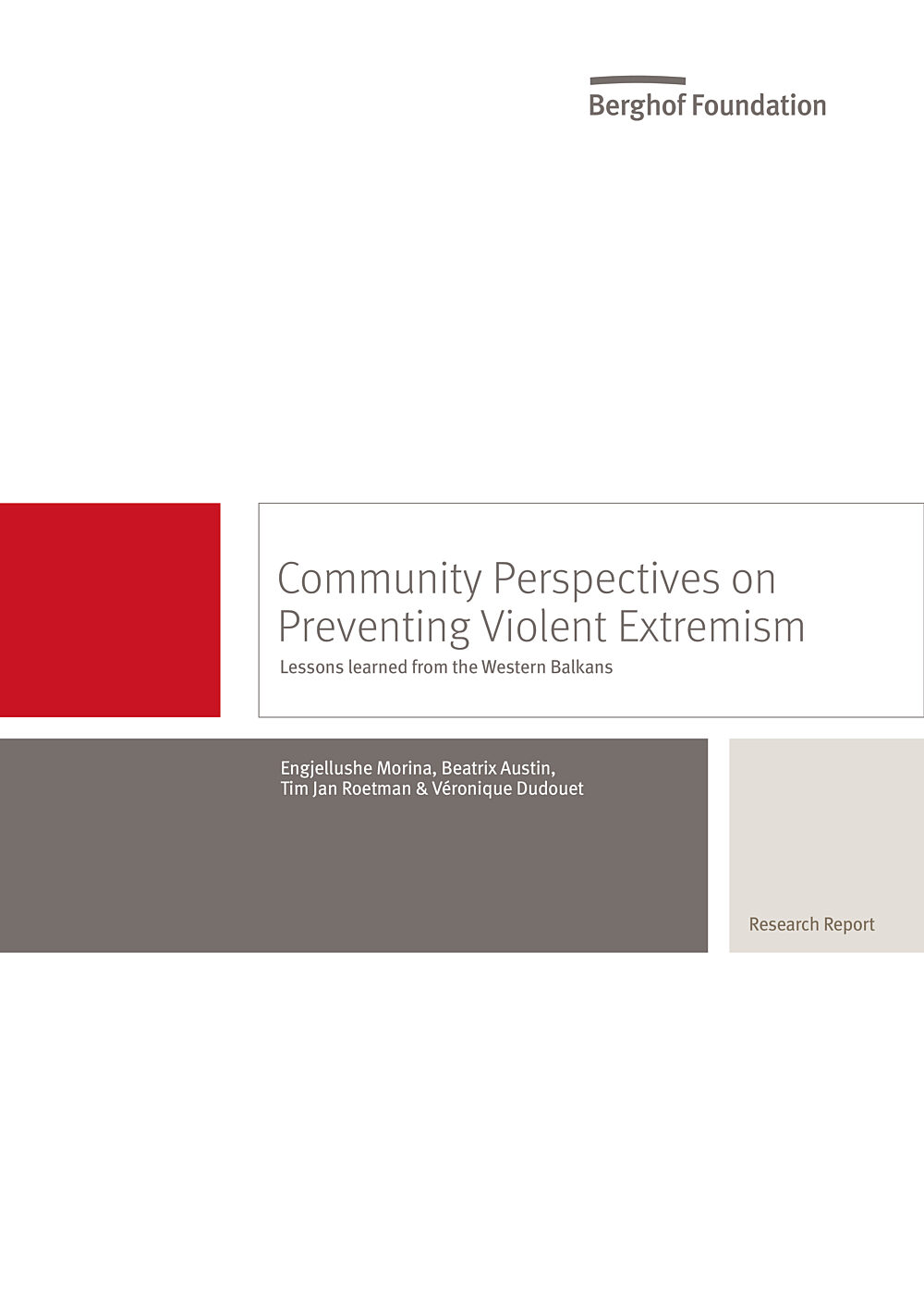FEATURE | 15 May 2019
Community Perspectives on Preventing Violent Extremism: Lessons learned from the Western Balkans

As the Balkans are currently back in the international spotlight, attention has returned to peacebuilding in the region.
As the Balkans are currently back in the international spotlight, attention has returned to peacebuilding in the region. This is an opportunity to link peacebuilding with a topic high on the international agenda: violent extremism.
The Berghof Foundation’s latest study set out to understand what made certain communities resilient to violent extremism, while others were less so despite similar socio-economic, ideological and political contexts.

The research also looked at the links between preventing violent extremism programming and peacebuilding. It found that viewing the prevention of violent extremism through a peacebuilding lens also implies the need to invest in systemic conflict analysis tools specifically tailored to transforming violent extremism.
Analysing and comparing communities’ characteristics in Albania, Bosnia and Herzegovina, Kosovo and North Macedonia, led to the following key findings:
- Polarisation, dysfunctional institutions, perceived marginalisation of communities based on their identity and geographic and historical specificities are the main factors conducive to the rise of violent extremism.
- Both local and exogenous actors, such as religious non-state actors, and reciprocal extremism play a key enabling role.
- Unaffected communities can be either resilient by chance (social and historical factors) or by choice (proactive/reactive community leadership).
- Awareness of the risks, attitude of tolerance towards others and action for proactive prevention are the three key ingredients for effective prevention of violent extremism in communities.
The following recommendations for programming aimed at preventing violent extremism, in the region and elsewhere, stand out based on this research:
- Strengthen and increase cooperation among community leaders and actors who can play a role in preventing violent extremism, with the municipality (or local administration) establishing community relations committees.
- Co-create and co-design new objectives and fine-tune existing objectives to respond to the current context.
- Improve and strengthen institutional performance and collaborative policy-making in the areas of education, youth and social affairs.
- Acknowledge religious institutions and religious leaders at the central and local level as influential actors with close ties to their communities and ensure their engagement countering violent extremism from the beginning.
- Involve cross-sections of local-level actors and community leaders in analysing the state of community vulnerability and resilience and in setting policy priorities.
- Invest in identifying and strengthening factors of community resilience and social cohesion (such as inclusive socio-economic development, inter-faith tolerance and civic education) as much as in measures of deterrence and punishment.
Community Perspectives on Preventing Violent Extremism: Lessons learned from the Western Balkans presents insights from a collaborative research project combined with community dialogue initiatives carried out in 2017-18 in four Western Balkan countries: Albania, Bosnia and Herzegovina, Kosovo and North Macedonia.
Through several events (including a presentation at the OSCE-wide Counter-Terrorism Conference in Bratislava in March), the researchers are currently engaging in discussions on their research findings and recommendations with practitioners and researchers.
To prevent violent extremism it is vital to know about local realities and engage with actors from the local community. @EngjellusheM presented our findings from the #WesternBalkans at this year’s @OSCE Counter-Terrorism Conference. More findings 👉 https://t.co/Et7hl1hOrz pic.twitter.com/BSer2HJ3VN
— Berghof Foundation (@BerghofFnd) March 26, 2019
Media contact
You can reach the press team at:
+49 (0) 177 7052758
email hidden; JavaScript is required


